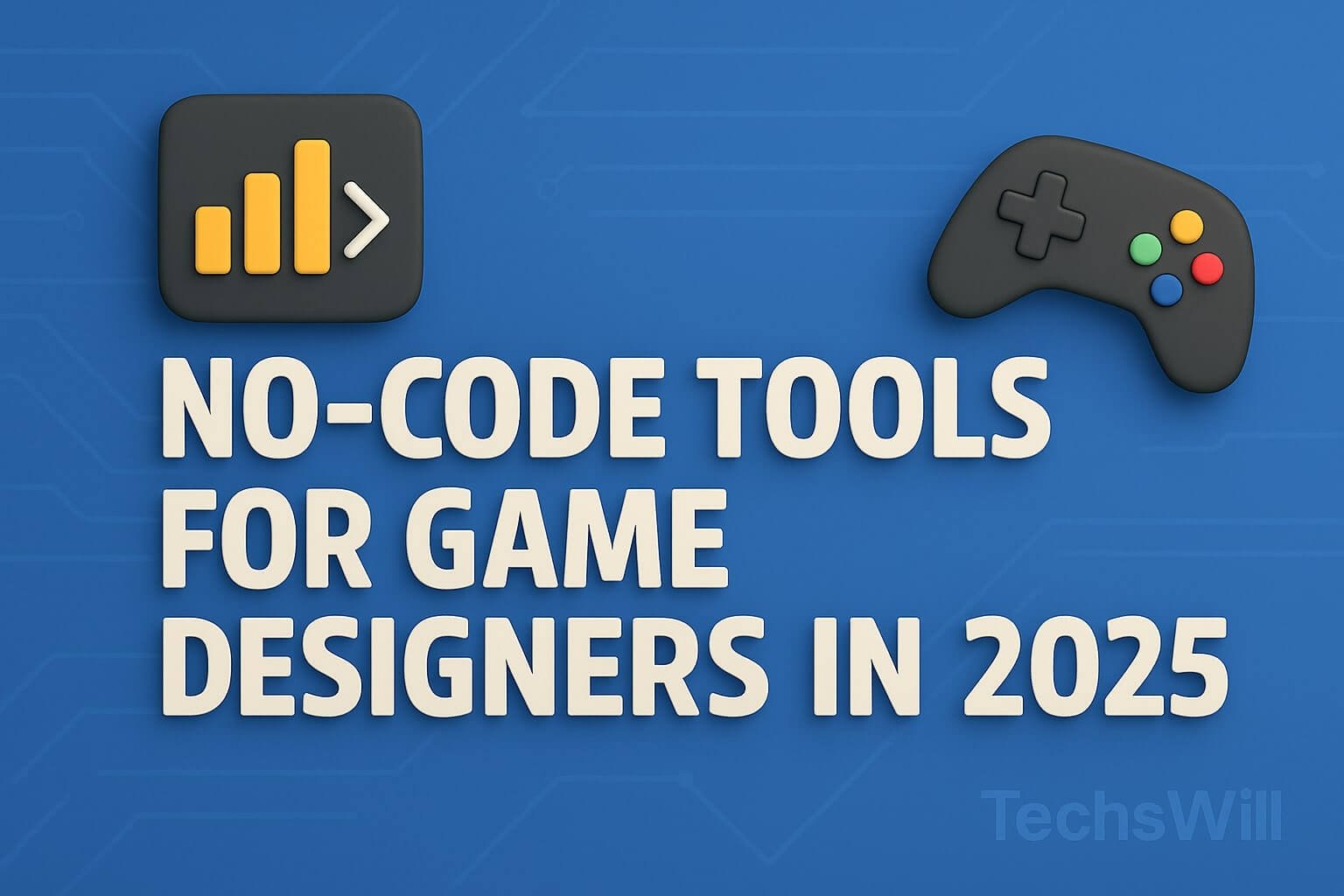Game development has never been more accessible. In 2025, no-code tools allow artists, writers, and entrepreneurs to build real games — without ever touching a line of code.
From drag-and-drop environments to visual logic systems, these tools empower creators to launch prototypes, monetize games, or test ideas without hiring engineers or learning Unity/C++.
🧰 Why No-Code Is Gaining Steam
No-code development platforms have exploded thanks to:
- Low barriers to entry
- Built-in export to Web, Android, iOS, and even Steam
- Rapid iteration for game jams, marketing tests, and MVPs
- Creator economy demand — more creators want to build games to support their content
🏆 Top 7 No-Code Game Tools of 2025
1. GDevelop (Free)
Open-source engine that supports 2D game creation with events-based logic and great Web export support. Drag-and-drop meets real power — ideal for beginners and educators.
2. Buildbox (Free + Paid)
Known for mobile games and hyper-casual hits. Strong template support and AdMob monetization tools built in.
3. PlayCanvas (Free + Paid)
A powerful 3D WebGL engine that runs in-browser. Good for small teams prototyping multiplayer games or 3D portfolios with logic connectors.
4. Scratch 3.0 (Free)
While often used in education, Scratch’s event-driven system and community support make it a fantastic sandbox for idea testing and kids’ games.
5. Construct 3 (Free + Paid)
Visual logic meets robust export tools. Popular among indie devs launching HTML5 and mobile puzzle games.
6. Flowlab (Free + Paid)
Game builder with easy classroom and personal use cases. Build, test, and publish from browser.
7. Core (Free)
Like Roblox for older audiences — full 3D multiplayer game kits with monetization paths and a live community.
🎯 Who Should Use These Tools?
- Content creators and YouTubers building mini-games for fans
- Students and hobbyists launching passion projects
- Indies prototyping before hiring devs
- Agencies testing branded games for marketing
📬 Final Thoughts
You don’t need a CS degree to ship a game anymore. In 2025, the best tool is the one you’ll actually use. Start small, iterate fast, and let your ideas lead the build.
Whether you’re validating a concept or launching a commercial product, these no-code tools are making the game industry more open — and more fun — than ever.

